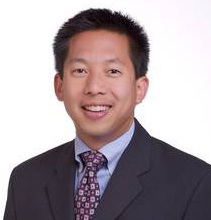By Brian Chou, OD,  FAAO
FAAO
If you look through optometric publications or listen to certain industry consultants, you may think you are the only OD left on earth who doesn’t own a posh and spacious optical dispensary or the latest in diagnostic instruments. I applaud the ODs aspiring to provide for patients’ every comfort and bring in leading-edge technology. But the good news is these creature comforts and expensive shiny diagnostic instruments do not alone define a successful optometric practice. Luxury accommodations and fancy imaging technology don’t substitute for getting the fundamentals of our profession right—clinical competence, a sincerely caring perspective and the ability to accurately match vision or eye health need with product or service.
I hear fellow optometrists say they are tired of flipping through optometric publications and reading articles about nice optometric offices with the latest gadgets and diagnostic instrumentation, the latest in ophthalmic lenses and so forth. They are frustrated because these profiles of seemingly picture-perfect practices represent a major disconnect with the real world. It is similar to a person in the grocery store check-out line flipping through a fashion magazine in which the models are airbrushed to seem flawless. There are articles about the perfect life, and advertisements for luxury cars, watches and jewelry—great products, but aspirational purchases out of the reach of most of the readership.
The US economy is based on deluding the average consumer (and eyecare practitioner) that happiness and success requires buying all those products in the magazines. The result is it makes the readers feel inadequate because they are not keeping up with the Joneses. What does this mean for ODs in independent practices? It means they have to weed out all that nonsense and recognize what is most important. It’s not possible for most ECPs to purchase every fancy new toy for their office and then mistakenly believe they can pass the costs onto their patients without push back. Instead, in this new economy, ECPs must make cost-containment decisions for their patients rather than making decisions based on what’s best for their patients exclusive of cost.
Your value as a practitioner is increasingly dictated by the advice you give your patients. For example, I would posit that a patient would prefer Doctor “A” who prescribes a drug for allergies that costs $5 a bottle and successfully treats 90 percent of patients, over Doctor B who prescribes a similar drug that costs $50 a bottle but successfully treats 95 percent of patients.
I am fortunate to own what other optometrists might consider a “dream practice.” But I don’t delude myself into thinking these nice-to-haves are anywhere near as important as the must-haves of superior clinical care, effective treatment and sincere caring for patients.
The next time you read about an amazing, seemingly flawless optometric practice or listen to a sales rep stress the importance of getting a new expensive instrument, consider this wisdom from Harvard psychologist Daniel Gilbert, who’s well known for his research on happiness.In his best-seller, Stumbling on Happiness, he writes: “Economies thrive when individuals strive, but because individuals will strive only for their own happiness, it is essential that they mistakenly believe that producing and consuming are routes to personal well-being.”
Fact is, our trade media has an inherent bias of placing the best looking practices onto a pedestal–particularly the practices that espouse virtues of using a particular advertiser’s products.The run-down practices with pastel-colored phoropters and acoustic ceilings are hidden from view. But don’t for a minute believe that just because you don’t have an automated refraction system measuring down to a millionth of a diopter that you are a substandard optometrist and doomed to an unhappy career.
Like the many American consumers who believe that they can consume their way to bliss, optometrists are often encouraged to believe that they must buy the latest gadgets and instruments to be happy and successful in their practice. Fortunately, there is no substitute for quality optometry, which any satisfied patient can tell you, regardless of whether their OD offers gourmet refreshments and high-priced electronic devices to play with. The human element brings the greatest value to our patients, well beyond what money can buy.
How do you strike a balance between providing for patient comfort while keeping your focus on the quality of care you deliver?
Brian Chou, OD, FAAO, is a partner with EyeLux Optometry in San Diego, Calif. To contact him: chou@refractivesource.com.





















